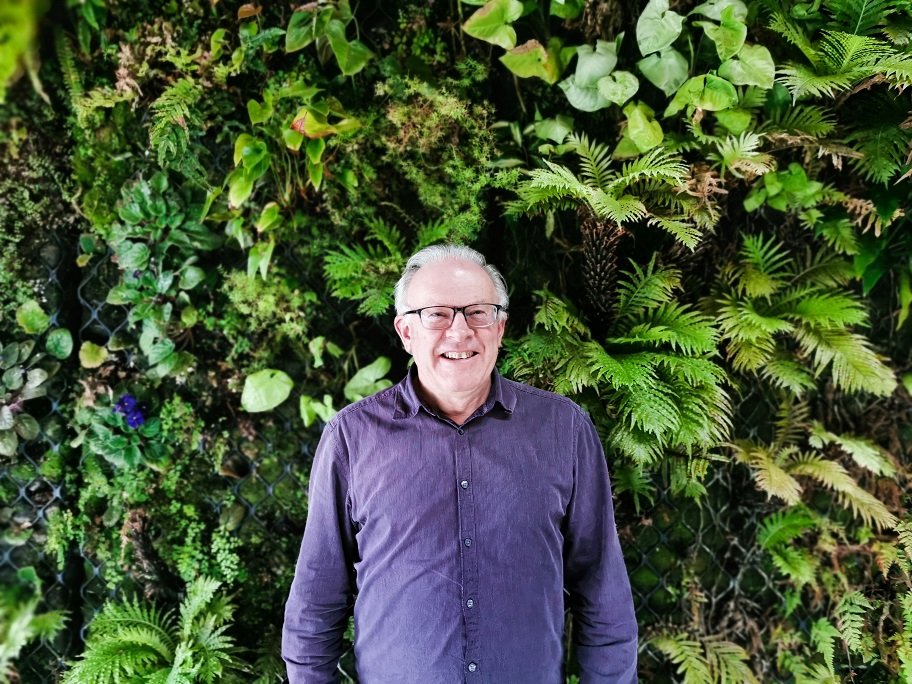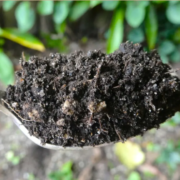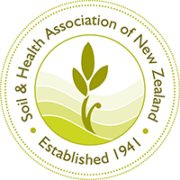Organics: the time is now!
We need to lead the way
By Noel Josephson, CEO of Ceres Organics
We hope you enjoy this free article from OrganicNZ. Join us for access to exclusive members-only content.
The growth of the organic market is significant such that within a relatively few years every major food retailer has felt compelled to have an organic offering even though organics is still a very small percentage of the total food market.
Organics is a consumer-driven market, which caught many major food companies off guard, in that it didn’t fit their model and vision of the market as driven primarily by price. Consumers were more future facing towards their health and the environment, and organics rightly captures that through farming that works with nature rather than conventional farming that tries to control nature.
What’s more the organic movement embodies principles of fairness and trust, and holds some of the answers to climate change, working with social issues, economic development and community development. All of this resonates with the shift of conscious towards realising that capitalism, technology and science are not perfect and don’t have many of the answers we need to reverse the damage we are doing to the earth and humankind.
For these reasons the swing of awareness towards organics has passed the threshold where it has now become of interest to the government and the push to legislate for a national standard is overdue. But if we in the organic sector sit back we risk letting this opportunity slip away at the very time when we should be doubling our efforts.
Speaking with one voice
This is precisely the time to encourage good leadership in our sector organisations to unite the movement to speak with one voice to government, and create a comprehensive plan for organics that the sector fully supports.
Any division in the movement opens the door to others taking the lead and government downplaying our voice. We need to speak with one voice representing the domestic market, the export market, growers, processors, certifiers and consumers. We need one voice representing the larger commercial interests in organics and the innovators and leaders of the organic movement who carry its ideals and values. We need one voice to ensure the standards that sit behind the legislation are primarily held within the organic movement and reflect the common interests of those directly involved in organics.
What is our vision of organics and how can we inform government of what is required? We should be approaching multiple government departments talking about the benefits of organics and what is needed.
Funding organics for success
We should orchestrate multiple channels of funding towards sectors of organics that need support, such as financial support and encouragement of farmers to transition to organics, education and advisory services to farmers, research to establish best practice and quantify data to underpin those practices, consumer awareness of organics and its benefits. These all need funding if organics is to succeed.
We can’t just think when legislation passes it will all happen – that is too late. Do we know what will come our way in terms of financial support? Is this something we have contributed to or are we just accepting what’s given to us by a government that’s just starting to understand organics, let alone know what it needs? A whole plan, together with the funding channels, needs to be on the table now.
The many solutions organics offers
Organics Aotearoa New Zealand (OANZ) as the peak body of the organic sector is in the best position to canvass the organic sector, build a comprehensive picture of what is required, and place this before government.
It is in the interests of the government to listen to ways of reducing greenhouse gas emissions, getting a greater return from agriculture as one of the major pillars of the economy without further intensification of agriculture from existing land.
It is in their interest to understand how we can move towards less polluted land and more productive soils, cleaner waterways and air quality, greater biodiversity as well as how to spend some of their $3 billion on regional development for a good return.
Some of the most pressing problems the government is looking for answers to are exactly the ones organics can bring substance to, and this places us in a strong position to engage and bargain with the government.
We cannot leave the door ajar
We should be keenly aware of the experience of organic movements in other countries at the stage we are at, where they didn’t ask up front for their needs and it goes on to the back burner as an issue to be dealt with in the future. Meanwhile the organic movement struggles and never fully develops its potential.
We should also think of the agendas of those interests that will lose out from a strong organic movement and in any vacuum we create, they will quickly fill it with their vision of how to proceed.
The pressure created by consumer demand for organics growing far faster than farmers and land are converting to organics already creates a tension that could undermine the organic movement. Demand will push commercial interests to meet it, and if the supply is not there the temptation to lower the standards to up supply will work its way into the organic movement. Therefore a strong push from the outset with government support to convert more farmers to organics will help keep the standards strong.
Our public image will make or break us
In the minds of many we are still fringe. The more we enter public consciousness the more we need to be leading the story.
Legislation will up our visibility and unless we are telling the story of the benefits of organics, interests that lose out (and who are more financial than us) will tell their story about Luddites and how we block ‘science’. You need only to see the bias in the Listener editorial at the end of April (on the purported benefits of GE ryegrass in decreasing methane emissions to alleviate climate change, and how science needed to trump the ideology of people who were opposed), to understand it doesn’t take much to paint us into a corner of being backward and blocking so-called progress. Once a public perception gains traction it takes a lot to change it.
This is the time we need leadership from our peak sector body, OANZ, to bring a renewed energy into our movement, together with a vision that encompasses the movement and stretches us to reach forward knowing that we are a strong partner for the government to work with.
The AGM for OANZ is yet to be announced but it is normally held in August. Through your membership organisation of OANZ encourage them to speak at the AGM with the purpose of activating organics in New Zealand.
OANZ
Organics Aotearoa New Zealand (OANZ) is the national voice of the New Zealand organic sector. Its member organisations include organic producers, processors, consumers, exporters and domestic traders. Soil & Health, the publisher of Organic NZ, is a member of OANZ.









